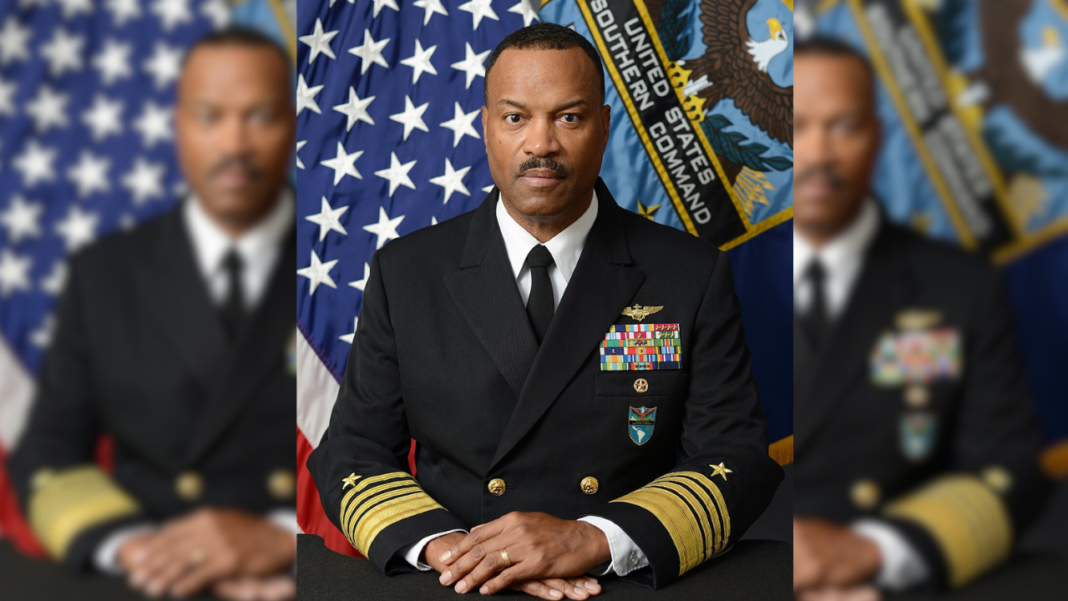Admiral Alvin Holsey’s Early Retirement: A Turning Point in Military Leadership
One of the U.S. military’s top commanders, Admiral Alvin Holsey, has announced an unexpected early retirement after serving less than a year in his role as head of U.S. Southern Command. This decision raises questions about the current state of military leadership, particularly in the context of ongoing controversies surrounding military operations and racial representation within the armed forces.
Leadership Background
Admiral Holsey, who has dedicated 37 years to military service, holds the rank of four-star admiral. Leading the U.S. Southern Command, he has been responsible for overseeing military operations in Central and South America. His leadership comes at a time when discussions about diversity and representation in the military are heating up, especially as Holsey is one of the few high-ranking Black officers in the armed forces.
Concerns Over Military Operations
Although Admiral Holsey did not publicly disclose the reasons for his departure, it coincides with a period of uncertainty and controversy regarding U.S. military operations in the Caribbean Sea. Under the Trump administration, there have been military strikes ordered against boats off the coast of Venezuela, which the administration claims are involved in drug trafficking. These operations resulted in considerable loss of life—27 people were reported killed—including the tragic case of 26-year-old Chad Joseph from Trinidad.
Legal and Ethical Questions
Critics have raised concerns about the legality of these strikes. The administration has characterized them as an “armed conflict” against drug cartels; however, members of Congress question whether such actions comply with U.S. law, as military action typically requires congressional approval. Additionally, the administration’s failure to provide clear evidence regarding the suspects raises ethical issues about due process, particularly given the loss of life involved.
Family members of victims, like Afisha Clement, cousin of Chad Joseph, have expressed their grief and frustration at the lack of accountability. Clement implored, “Donald Trump took a father, a brother, an uncle, a nephew from families.” Such sentiments underscore the personal impact of these military decisions on communities deeply affected by the violence.
The Broader Context
The administration’s claim that the targeted boats were carrying fentanyl has also been contested. Reports indicate that most illicit fentanyl entering the U.S. originates from Mexico, not Venezuela. This mischaracterization could potentially divert attention from more pressing issues regarding drug trafficking and complicate diplomatic relations in the region.
Admiral Holsey’s early retirement is part of a troubling trend of significant departures among Black leaders in the military, along with other minorities and women. Earlier this year, General Charles Q. Brown Jr.—another prominent Black military leader—was removed from his position as chairman of the Joint Chiefs of Staff by the Trump administration. This prompted additional discussions about the treatment of minority leadership within the military.
Impact on Diversity Initiatives
The current administration has actively dismantled diversity, equity, and inclusion initiatives that were seen as necessary steps toward addressing systemic issues within the military. From policies aimed at promoting diversity to revising regulations that affected the appearance of Black servicemembers, the Trump administration has been perceived as eroding progress made over previous decades.
Richard Brookshire, co-founder and co-CEO of the Black Veterans Project, voiced concerns regarding the implications of Holsey’s resignation. He described it as an example of leadership being pushed to their limits and emphasized the broader ramifications for the military and its ethical standing.
A Darkening Military Landscape
The combination of Admiral Holsey’s resignation and the political maneuvering surrounding military operations signals a troubling time for the U.S. armed forces. As various leaders call attention to these issues, there is an urgent need for reflection regarding the ethical implications of military actions and the ongoing challenges of representation in leadership roles. The military’s legacy stands on the precipice of what may soon be regarded as a complicated chapter in American history, with enduring effects on its honors and values.



